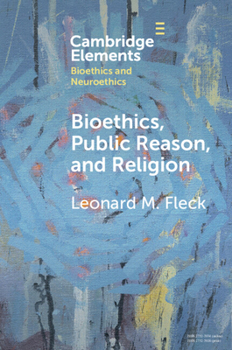Bioethics, Public Reason, and Religion
Can religious arguments provide a reasonable, justified basis for restrictive (coercive) public policies regarding numerous ethically and politically controversial medical interventions, such as research with human embryos, pre-implantation genetic diagnosis, or using artificial wombs? With Rawls, we answer negatively. Liberally reasonable policies must address these controversial technologies on the basis of public reasons accessible to all, even if not fully agreeable by all. Further, public democratic deliberation requires participants to construct these policies as citizens who are agnostic with respect to the truth of all comprehensive doctrines, whether secular or religious. The goal of these deliberations is practical, namely, to identify reasonable policy options that reflect fair terms of cooperation in a liberal, pluralistic society. Further, religious advocates may participate in formal policymaking processes as reasonable liberal citizens. Finally, public reason evolves through the deliberative process and all the novel technological challenges medicine generates for bioethics and related public policies.
Format:Paperback
Language:English
ISBN:1009078054
ISBN13:9781009078054
Release Date:September 2022
Publisher:Cambridge University Press
Length:75 Pages
Weight:0.28 lbs.
Dimensions:0.2" x 6.0" x 9.0"
Related Subjects
PsychologyCustomer Reviews
0 rating





